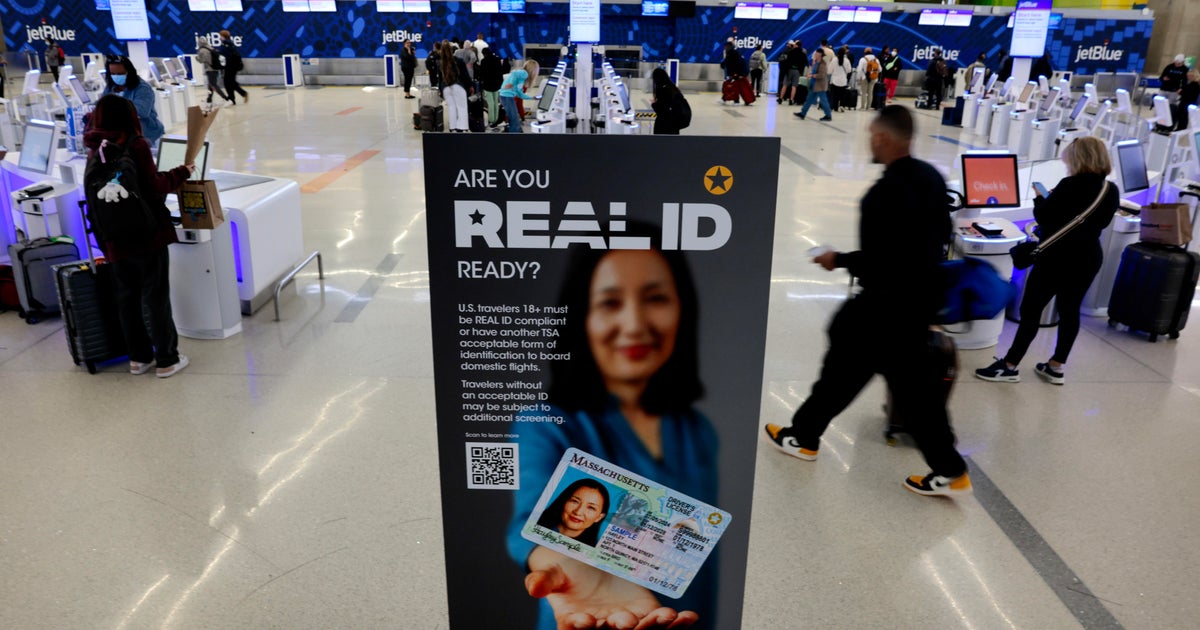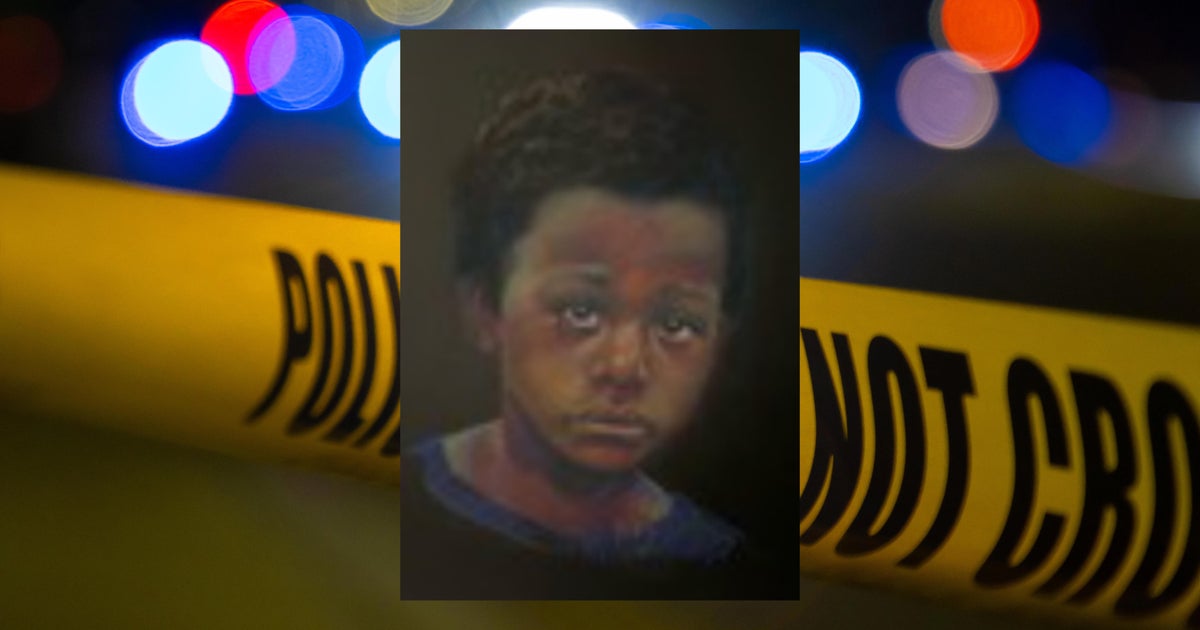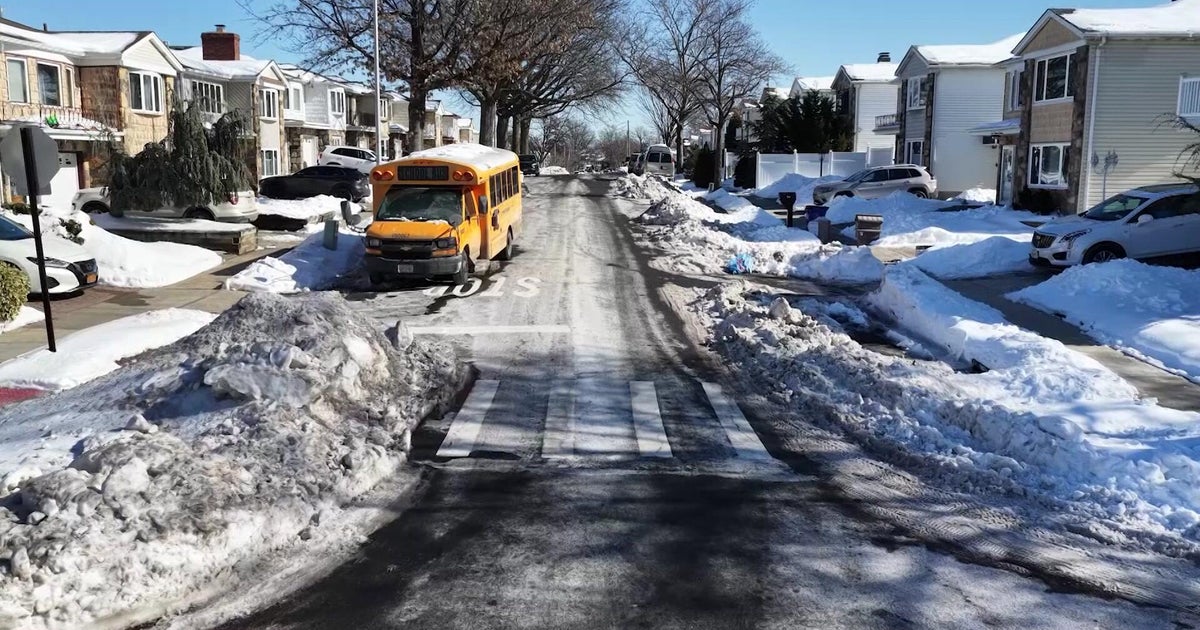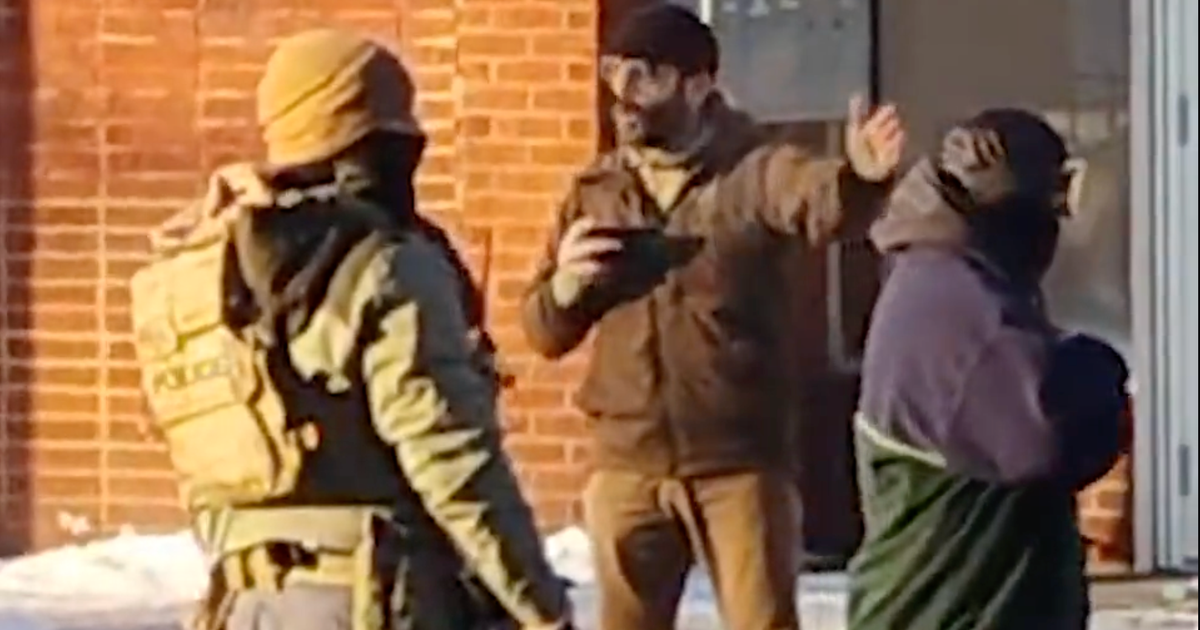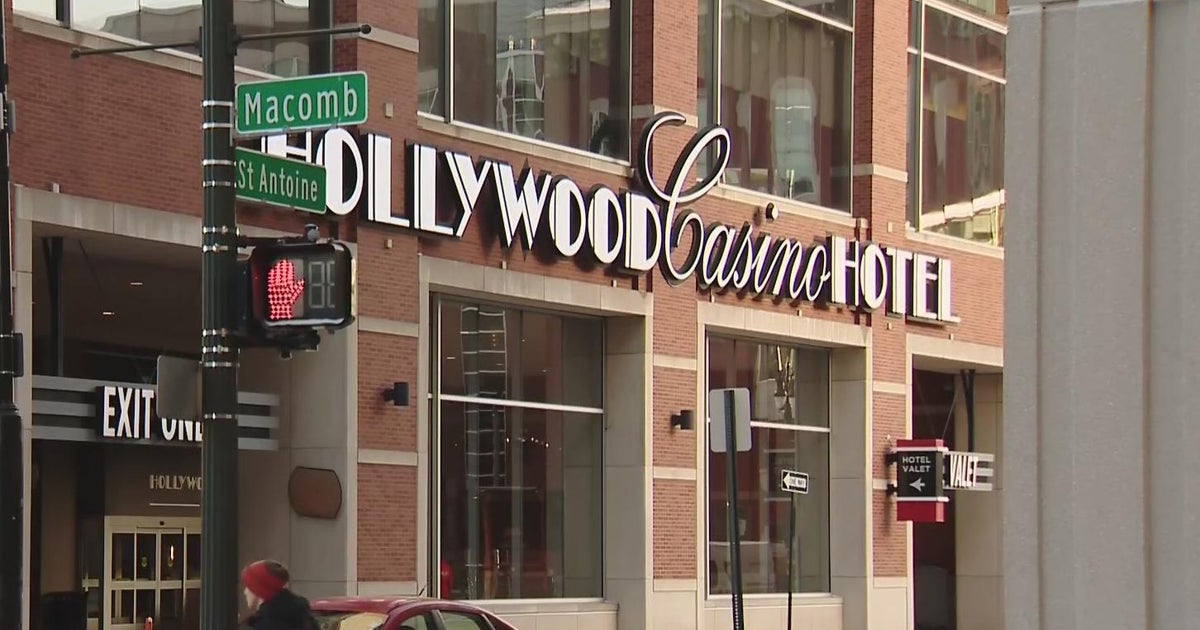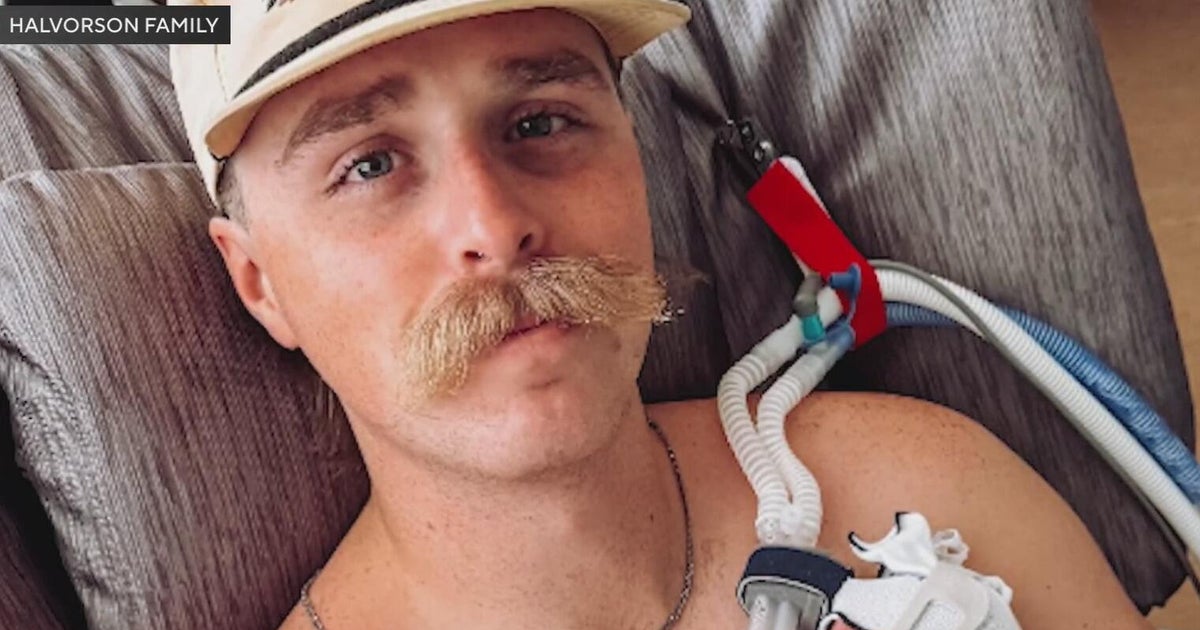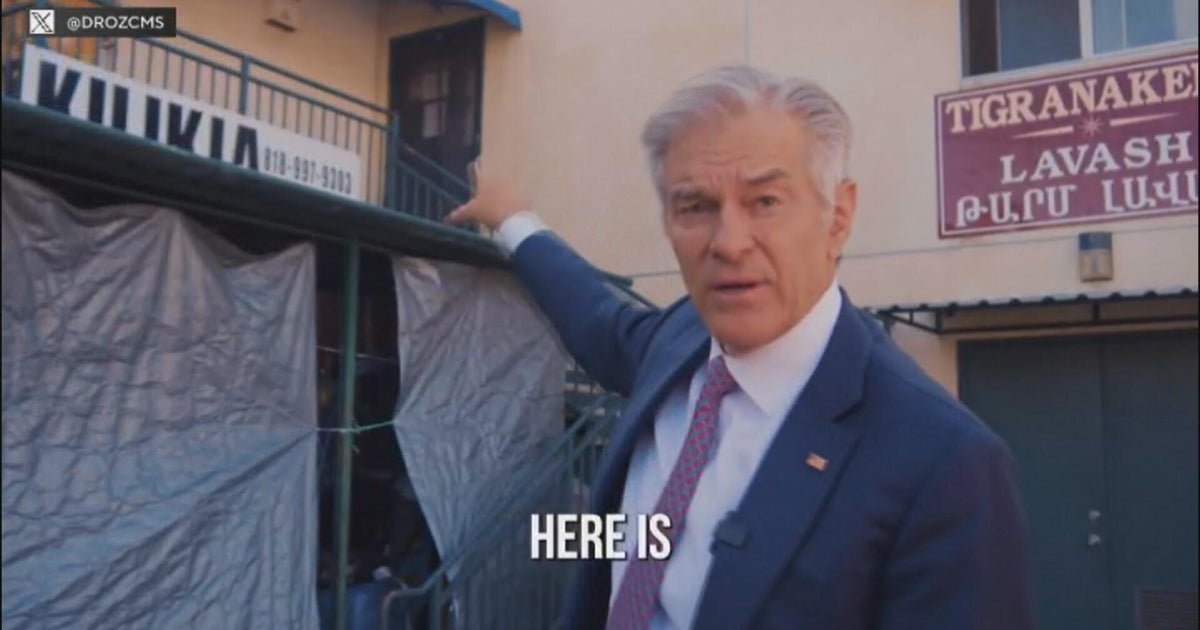NYC Project IDs More Than 4,000 Civil War Graves In Brooklyn's Green-Wood Cemetery
NEW YORK (AP) -- The first Civil War casualty to be buried in Green-Wood Cemetery in Brooklyn was a 12-year-old drummer for a New York regiment.
Clarence McKenzie, a local boy fatally wounded in an accidental shooting in Maryland, was buried June 14, 1861, two months after the Union garrison at Fort Sumter surrendered to Confederate forces. He was followed to the grave 12 days later by Adolph Vincens, a 23-year-old London-born jeweler who was the first Civil War battle casualty buried at Green-Wood.
By the time the war ended four years later, about 200 other soldiers and sailors who died in the Civil War were buried at Green-Wood, established in 1838 in what was then a rural section of Brooklyn. In the decades after the war, thousands of others would join their comrades and even some of their one-time enemies, at the historic cemetery.
Today, the 478-acre expanse of greenery and statuary covering the cemetery's rolling hills is believed to be the final resting place of about 8,000 Civil War veterans.
A team of volunteers and Green-Wood staff has spent nearly a decade trying to identify all those graves. When the project began in September 2002, cemetery officials figured they had, at most, 500 veterans of the nation's bloodiest war buried here.
Using the cemetery's own burial records, plus government, military and privately owned documents available online, Green-Wood's project has identified the graves of about 4,600 Civil War veterans. Green-Wood historian Jeffrey Richman estimates 3,000 to 4,000 more are scattered among the cemetery's more than 560,000 total interments.
The Civil War dead buried at Green-Wood include unknown privates and famous officers, buglers and Medal of Honor recipients, Yankees from Maine to Iowa, fathers, sons and brothers, and even 75 Confederates, including two generals. None of the original gravestones for the Confederates gave any indication they had fought for the South, an intentional omission being rectified by the installation of new granite markers provided by Veterans Affairs.
Some of the gravestones and other markers at the previously known burial plots indicate that a person was a Civil War veteran, but most don't bear information or an insignia that would tip off researchers, Richman said. Some of the grave markers are so worn the inscriptions can't be read, while others are overgrown by grass or have sunken below ground level. Many of the veterans lie in unmarked graves, and it's only by checking the cemetery's detailed maps that individual burial plots can be located.
Part of the project includes placing new granite markers at the graves, marked and unmarked, of 2,000 of the Civil War veterans. So far, about 1,300 of the VA markers have been installed.
This Memorial Day weekend, the cemetery is hosting a three-day commemoration that includes re-enactors' encampments, an evening procession past the candlelit graves of the Civil War veterans and a gathering of some of their descendants, who will read their ancestor's name during a ceremony on Monday.
Jeanne Vincens, whose ancestor was mortally wounded at Big Bethel, Va., plans to take part in the ceremony. She helped acquire a VA marker for Adolph Vincens' grave several years ago. So, she knows what some of the other descendants will be experiencing when they see their ancestor's grave and remember the sacrifices made
150 years ago.
"It's very, very emotional,'' said Vincens, a 57-year-old information technology manager from Richmond, Va. "It's really a culmination of a lot of family history, and then being able to honor this person to make sure they're going to be remembered.''
The cemetery's project includes compiling brief biographies for each Civil War veteran interred at Green-Wood. Some 4,600 are included on a compact disc the cemetery is selling for $10 each. According to the information on the CD, burials of Civil War veterans at Green-Wood continued through the 1930s and into early 1941, when 94-year-old Henry Stamm and 101-year-old Joseph H. Smith of East Orange, N.J. were laid to rest.
With several thousand graves still to be identified, Richman said it's unclear if Stamm and Smith were the last in a long blue and gray line to be buried at the cemetery, a line led 150 years ago by the drummer boy from Brooklyn.
(Copyright 2011 by The Associated Press. All Rights Reserved.)
